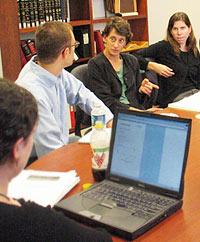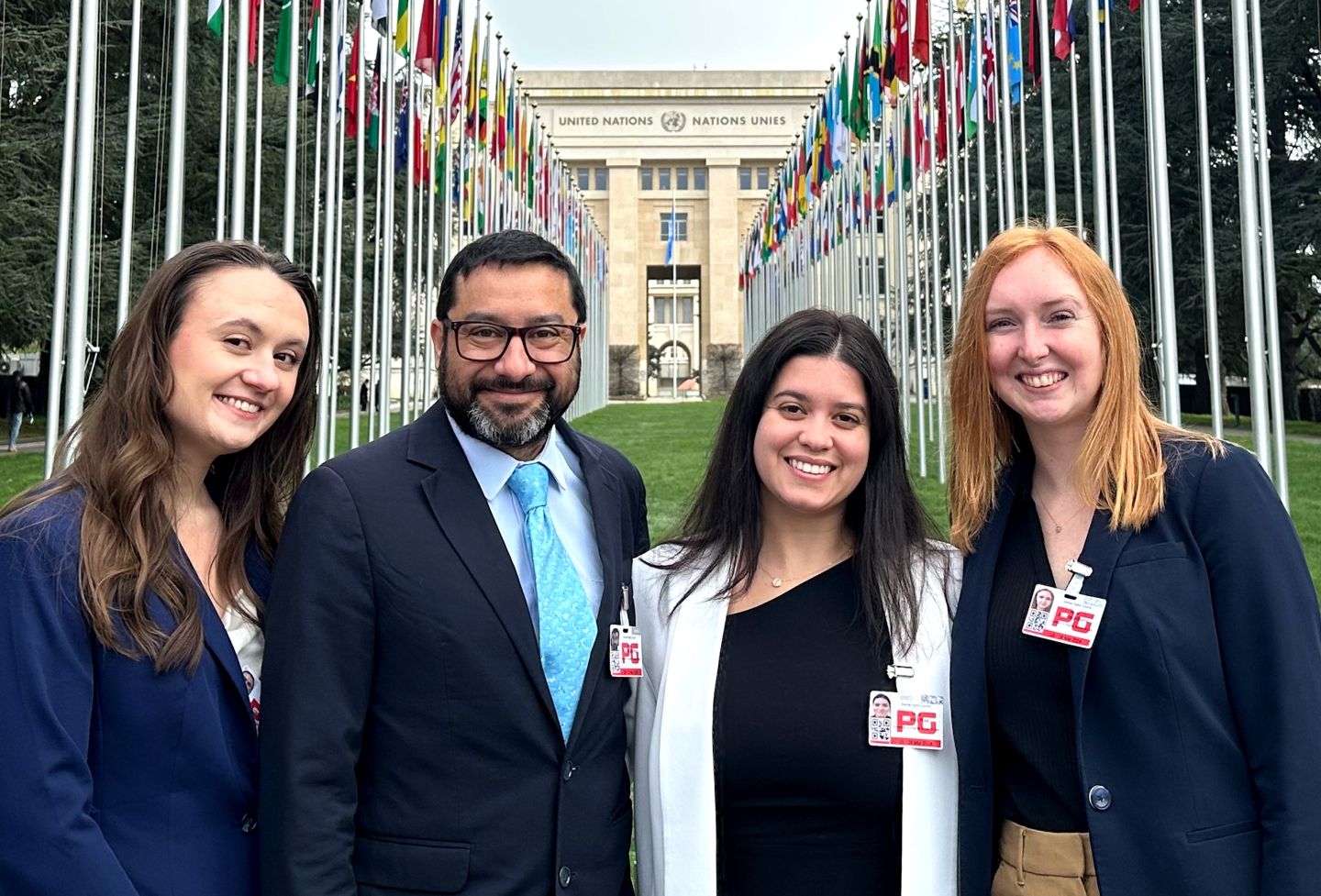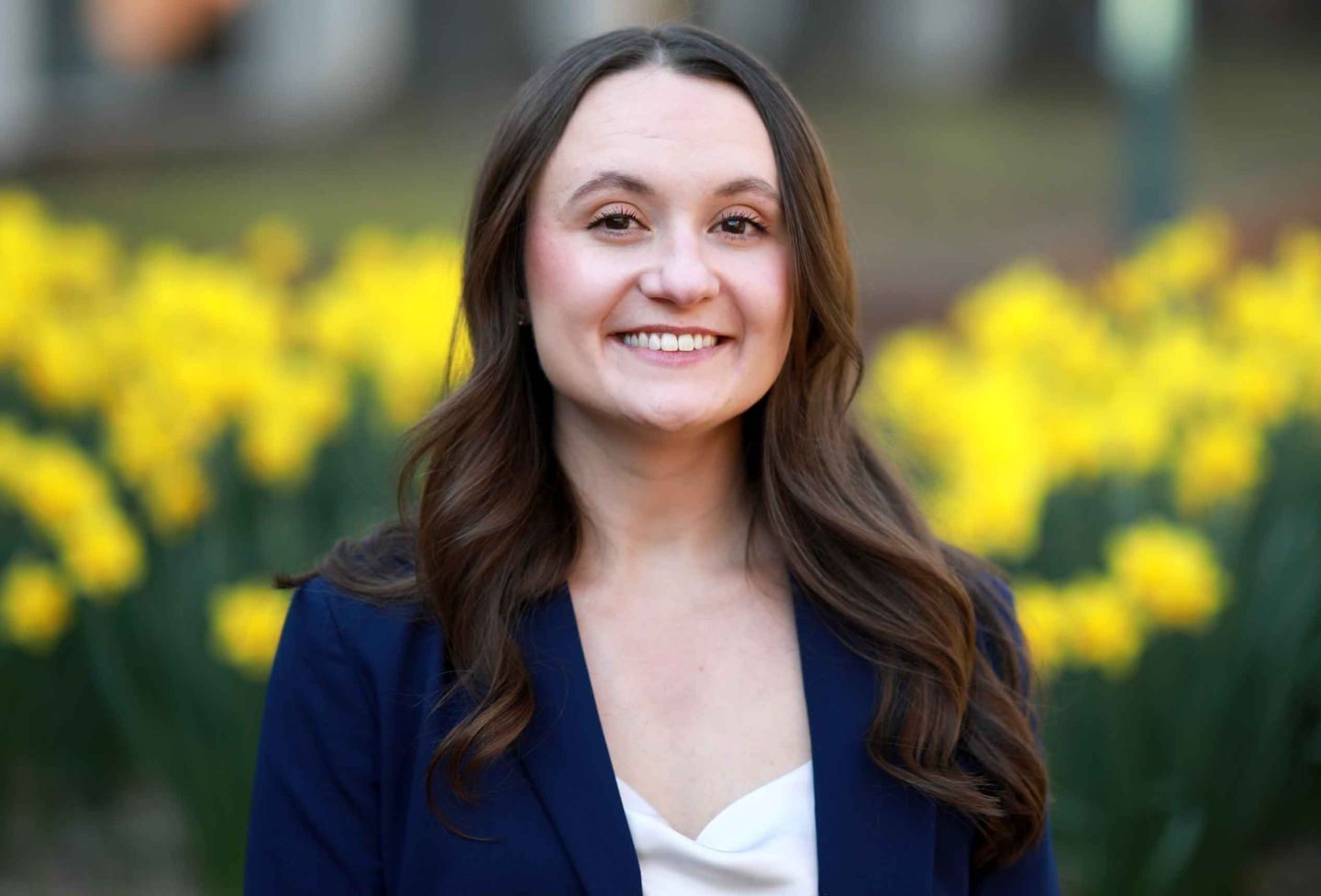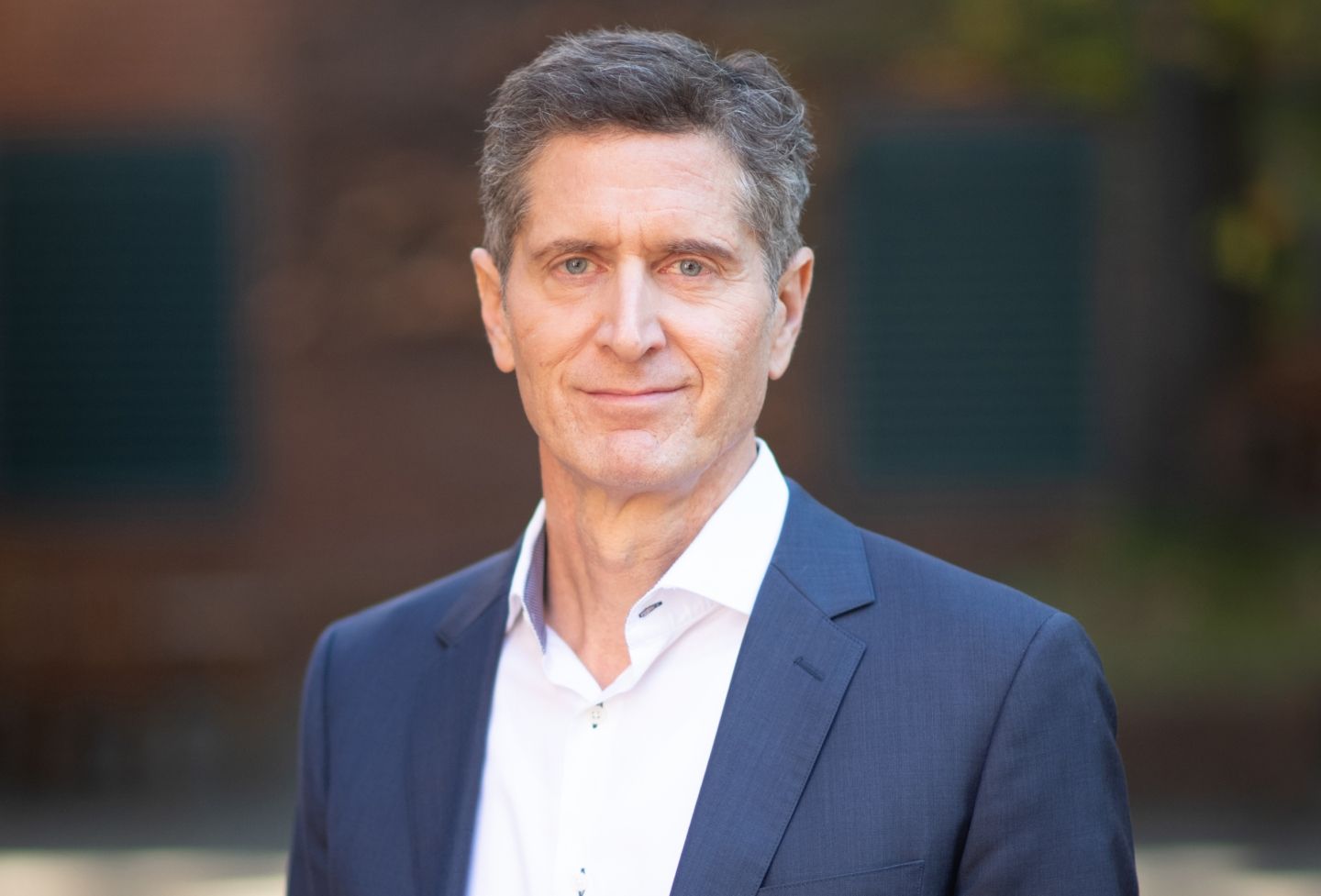Human Rights Program Offers Students Experience, Mentoring

Tucked in a conference room in Slaughter Hall, the students and instructors of the International Human Rights Clinic discussed recent articles on a Nigerian woman who had been sentenced by an Islamic Law court to be stoned to death for adultery because she became pregnant more than nine months after her divorce. Were human rights organizations legitimizing Islamic court decisions by protesting, since the case would probably be (and was) dismissed for lack of evidence? What is the best strategy for serving the interests of your client while still educating people about human rights atrocities?
"One of the issues in [a student project on freedom of expression in Afghanistan ] is what happens in a country that has a hybrid system of secular and Islamic law?" said Deena Hurwitz, who leads the clinic and is also director of the new Human Rights Program.
The program offers a focal point for human rights activities in the Law School community, coordinating with existing student groups such as the J.B. Moore Society of International Law and Human Rights Study Project, with the Public Service Center, and with faculty whose interests include human rights. The program also aims to provide mentorship to students, helping them organize events, find jobs and internships, and connect with alumni and others who have similar interests.
"My goal is to have as many students as are interested able to do human rights internships and pursue human rights fellowships and careers," Hurwitz said. That means having a program with "the ability to bring top-notch, exciting human rights scholars and practitioners to the school to interact with students and faculty."
At the center of the program is the International Human Rights Law Clinic-one of just 12 in law schools nationwide that take on a full range of human rights-related projects. The clinic offers students practical experience in human rights advocacy under the supervision of experienced human rights lawyers. Clinic students are now collaborating on projects with Human Rights Watch on accountability for serious past crimes in Iraq; the International Human Rights Law Group on freedom of expression in Afghanistan; EarthRights International on meaningful participation and consent of indigenous communities in development of their lands; the Lawyers Committee for Human Rights on a U.S.-Canada immigration treaty; the Center for Justice and International Law (CEJIL) on economic, social and cultural rights in the Inter-American Human Rights System; and on legal research for the Special Court for Sierra Leone.
"There's a lot out there — it really is a dynamic field," Hurwitz said. "The fact that we're close to Washington is a very positive aspect in terms of our ability to interact with human rights lawyers and non-governmental organizations."
Third-year law student Jay Meisel, president of Amnesty International at Princeton as an undergraduate, is working on a project involving the U.S.-Canada Safe Third Country Agreement Act, which, once adopted, aims to limit the flow of refugees between the two countries in the wake of September 11. He will soon start working on a project that studies how countries in hotbed areas are balancing — or not balancing — laws designed to prevent or prosecute terrorism with civil liberties or human rights.
"It's nice to have a more hands-on approach to doing the sort of law I'm interested in," Meisel said. "You never really get to know a subject unless you engage in it with real projects."
Clinic students also examine their work critically in a seminar setting, discussing human rights law concepts and the legal, strategic, ethical, and theoretical issues raised by their efforts. Earlier this semester students discussed the theory of customary international law, a body of norms that are so broadly accepted that states adhere to them because of their widespread practice — for example, prohibitions against slavery and torture. Some ideas are less widely accepted, such as prohibiting discrimination against women, or the idea of universal jurisdiction — where someone from one country could be prosecuted for crimes in another.
"This concept, this body of norms, is constantly changing — it's the area where human rights law is developing," Hurwitz said.
Hurwitz is supported by three adjunct clinical instructors this semester, including Virginia Law graduates Katie Redford '95, from EarthRights International, and Mark Bromley '95, from the International Human Rights Law Group. Adjunct clinic instructor Mary Greer works for the American Bar Association's Central and East Europe Law Initiative. Hurwitz also plans to invite guest speakers, such as U.Va. Religious Studies Professor Abdulaziz Sachedina, a well-known Islamic law scholar scheduled to talk at the school Oct. 20, to add perspective to the issues the students study.
Law professors Rosa Brooks and David Martin "experts in human rights law and refugee and asylum law-saw students' desire for more mentoring opportunities and hands-on experiences, and proposed establishing the program last spring.
"There are a lot of human rights law-related things that go on at the Law School … but nobody whose job it was to try to put all the pieces together and make it accessible to all the students," Brooks said. She added that it was important to her and Martin that the school offer a clinic with real-world projects, and with a full-time supervisor who was fully invested in the program.
Hurwitz joined the faculty after completing a fellowship with Yale Law School 's human rights clinic, coordinating events sponsored by their international human rights center, and teaching International Human Rights at Yale College. She formerly served as director of the International Human Rights Law Group's Bosnia program and as a liaison officer to the Human Rights Coordination Centre of the Office of the High Representative, both in Bosnia and Herzegovina. She focused on Israel's human rights record in the context of a regional trade agreement while working for the Centre for International Human Rights Enforcement in Ramallah (Israeli-occupied Palestinian territory), and investigated violations of women's rights under Morocco's Family Code for the Women's Division of Human Rights Watch.
Hurwitz sees potential for growth in the program and she intends to draw in more alumni who work in the field. Her wish list also includes establishing a one-year post-graduate fellowship position for recent graduates, developing more short courses focused on human rights, creating a database of past student experiences in human rights law positions, and possibly funding fellowships for students working abroad during the summer. As an alternative, students may be able to work for a law firm during half of one summer and have that firm fund human rights work abroad during the second half. Hurwitz said she may institute student directors to help run events and generate more ideas for the program.
The program is "exposing students to the practitioners in the field and the cutting-edge issues, and giving them a sense for the possibilities of working in the field — and supporting their interests, whatever that might be," she said.
Hurwitz, who authored a treatise on the need for human rights clinics in law schools, said ultimately she wants to increase the school's appeal to students interested in international and human rights law. "The fact that we have a clinic and program will help to draw that kind of student here," she said.
Founded in 1819, the University of Virginia School of Law is the second-oldest continuously operating law school in the nation. Consistently ranked among the top law schools, Virginia is a world-renowned training ground for distinguished lawyers and public servants, instilling in them a commitment to leadership, integrity and community service.


